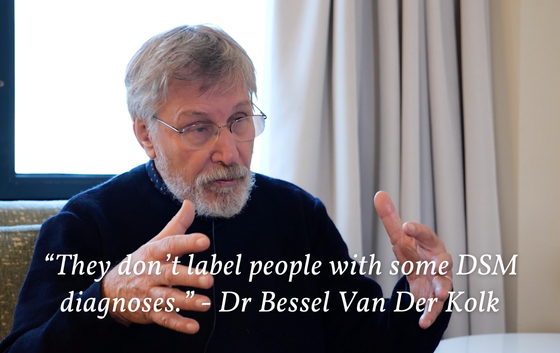What We Treat
A Radically Different Approach to Treatment
We don’t treat diagnoses or symptoms. We treat the underlying root causes behind the commonly diagnosed mental and physical health conditions such as anxiety, depression, bipolar disorder, eating disorders, insomnia, digestive disorders and much more.
“For the first time I was not simply labelled with diagnoses, but treated as an individual and helped to understand and begin to manage my previously debilitating symptoms. learnt a therapeutic language which finally explained the symptoms and coping mechanisms that had dominated the majority of my life.”
Lilly, Spain
We Look Beyond Diagnoses
We Treat The Root Causes, Not Just the Symptoms
Our clients typically come to us with an array of mental and physical health diagnoses and symptoms. Often they have already had treatment for these issues with limited success.
We help you to make sense of what caused these mental and physical health issues, and together we find a path to heal their root causes, promoting lasting recovery.
We don’t treat diagnoses or symptoms.
We treat the underlying root causes beneath these various problems which cause the symptoms that receive these kinds of diagnoses:

“Khiron Clinics very specifically knows about trauma and doesn't label people with some of these DSM diagnoses that really don't mean much and don't have much science behind them.”
Dr Bessel Van Der Kolk
Mental Health Conditions:
- OCD
- Phobias
- Panic Disorder
- Body Dysmorphic Disorder
- Insomnia Disorder
- Personality Disorders
- Psychosis
Symptoms
- Stress
- Anxiety
- Depression
- Insomnia
- Dissociation
- Mental Illnesses
- Risk-taking behaviours
- Suicidality
- Digestive Disorders
- Obsessions
- Compulsivity
- Agoraphobia
- Panic & Fear
- Irritability
- Shame
- Difficulty Concentrating
- Mood swings
- Outbursts of rage or violence
How We Treat the Most Common Symptoms of Trauma

“Trauma is mental injury, not mental illness.”
Linda Thai

Anxiety
Trauma rarely exists without anxiety. This is because people often struggle to feel safe and regulate their emotions after experiencing trauma, feeling like they're constantly in danger.

Depression
Trauma often leads to feelings of fear, helplessness, and loss of control. These intense emotions can overwhelm an individual's coping mechanisms and lead to a sense of hopelessness or despair, which are hallmark features of depression.

PTSD
Post Traumatic Stress Disorder is not just a result of war and disastrous events, it can stem from much less known causes such as unstable parenting, relationship breakdown, grief and more.

Borderline Personality Disorder (BPD)
Intense emotions, fear of abandonment, and feeling like you don’t know who you are can be exhausting. But you are not broken—healing, connection, and stability are possible.

Suicidality
Suicidality isn’t a sign of weakness—it’s a response to deep pain. Feeling like you ‘want out’ is natural when hope feels lost, but there is another way forward.

Bipolar Disorder
Trauma often leads to feelings of fear, helplessness, and loss of control. These intense emotions can overwhelm an individual's coping mechanisms and lead to a sense of hopelessness or despair, which are hallmark features of depression.

Dissociative Identity Disorder (DID)
Living with different parts of yourself can be confusing, isolating, and exhausting. But every part of you deserves understanding, and healing is possible.

Stress
Chronic stress and trauma are linked, as constant pressure or past wounds keep the nervous system in survival mode. Healing is possible when the body learns to regulate, allowing stress and trauma to lose their grip.

Download the Brochure
Discover Our Innovative Trauma Recovery Pathway
What the Experts Have to Say
“Khiron Clinics very specifically knows about trauma.” - Dr Bessel Van Der Kolk
Next Steps
We Are Here to Help You Find the Path to Effective, Long Lasting Recovery.

Talk to Us
Get in touch with us and share your story if you feel comfortable with someone who will listen. Our team are always here to help.

Book an Initial Consultation
Meet with a senior member of our clinical team and get insights into the root causes of your issues, plus a written summary and treatment recommendation.

Download Our Brochure
Discover our innovative trauma recovery pathway. Find out more about how we treat, what we treat, our clinics, pricing and more.


